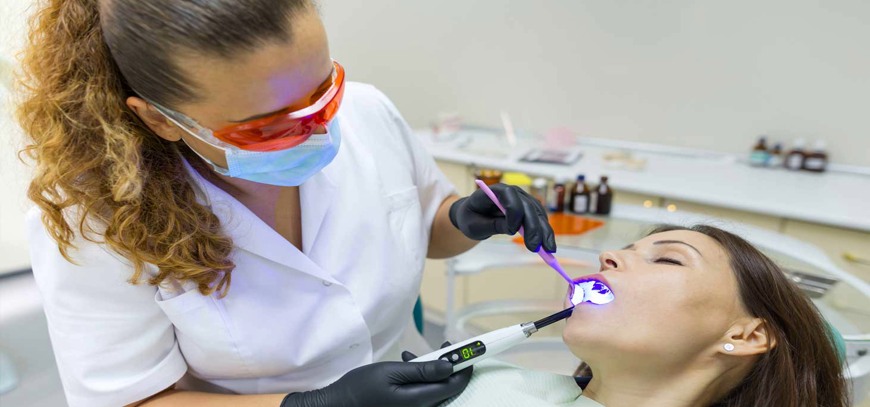Dental Sedation

Many people fear dental procedures. They worry about the pain they might feel as well as their vulnerability and potential discomfort. Sedation dentistry can definitely help patients feel more relaxed during dental work.
With sedation, the dentist administers a drug before or during the dental procedure. Only one type — general anesthesia — renders the patient completely unconscious. The other forms will relax you, but won’t knock you out completely.
The most common types of sedation dentistry include the following:
- Nitrous oxide: A gas that relaxes you during the procedure. It wears off quickly, so your dentist might let you drive yourself home after the appointment.
- Oral sedatives: Oral sedatives, such as diazepam, also help relax patients during dental procedures. You typically take them an hour or so before your appointment. You’re fully awake but less anxious, and you might feel a little sleepy until it wears off.
- Intravenous sedatives: Intravenous, or IV, sedatives can put you in varying stages of consciousness. This is also known as general anesthesia and, as mentioned above, will put you into a deep sleep until it wears off. Other IV drugs, however, can put you into a “twilight sleep.” You’re less aware of your surroundings, you might feel sleepy, and you might not remember much of the procedure once it’s over.
How sedation dentistry works
The process depends on the type of sedation your dentist chooses. If you’re taking an oral sedative, for instance, your dentist will write you a prescription for the drug and give you instructions on how to take it. As long as you follow those instructions, you’ll benefit from reduced anxiety and increased relaxation. Once the medication begins to work, you should start to feel drowsy and content.
You don’t have to prepare at all for nitrous oxide. Your dentist will supply it before, during, and right after the procedure. However, if you choose IV sedation, you might have to prepare in advance.
For instance, your dentist might ask you to fast — not eat or drink anything — for several hours before the dental work. You might also need to avoid taking certain medications the day before you visit the dentist because they can interfere with the sedation medication.
A local anesthetic will numb the pain, and the dental sedative will further lower your awareness level so that you will feel little if any pain during the dental procedure.
No, dental sedation does not cause one to go to sleep or become unconscious. You will still be awake and able to converse, but you will simply be less active and responsive, and totally relaxed and at ease.
Yes, sedation dentistry is just as safe for kids as it is for adults. It is routinely administered to children, so there’s no need to worry.
